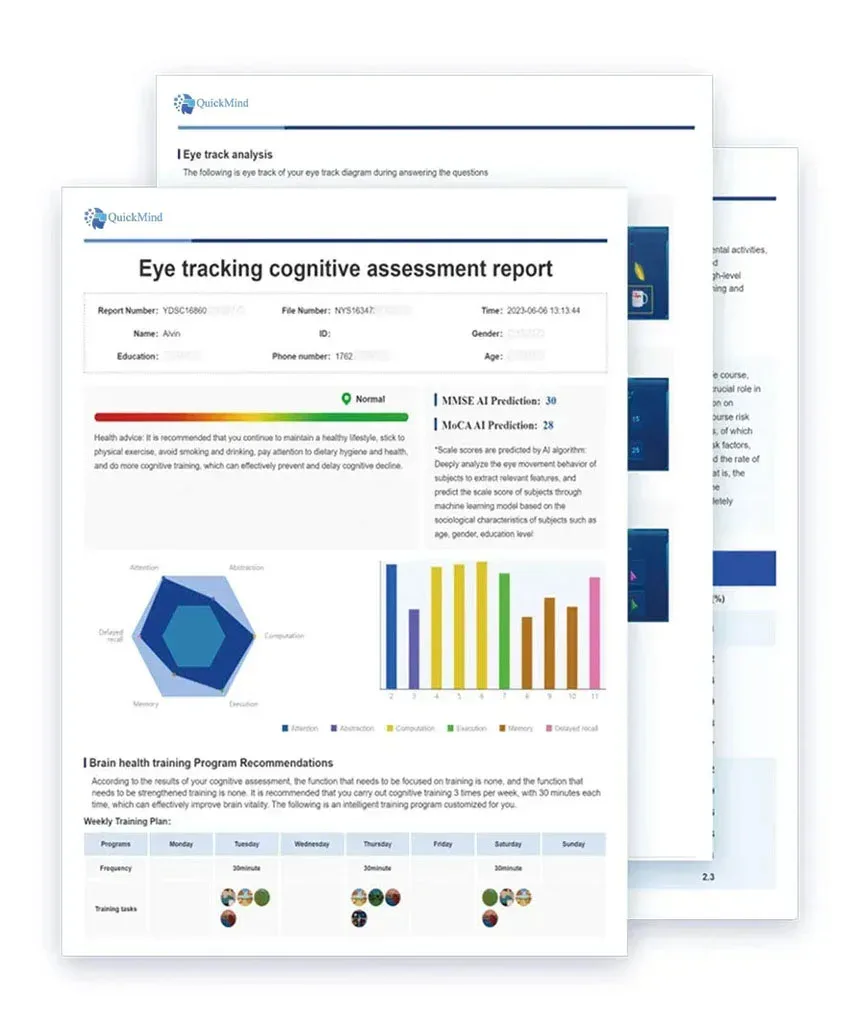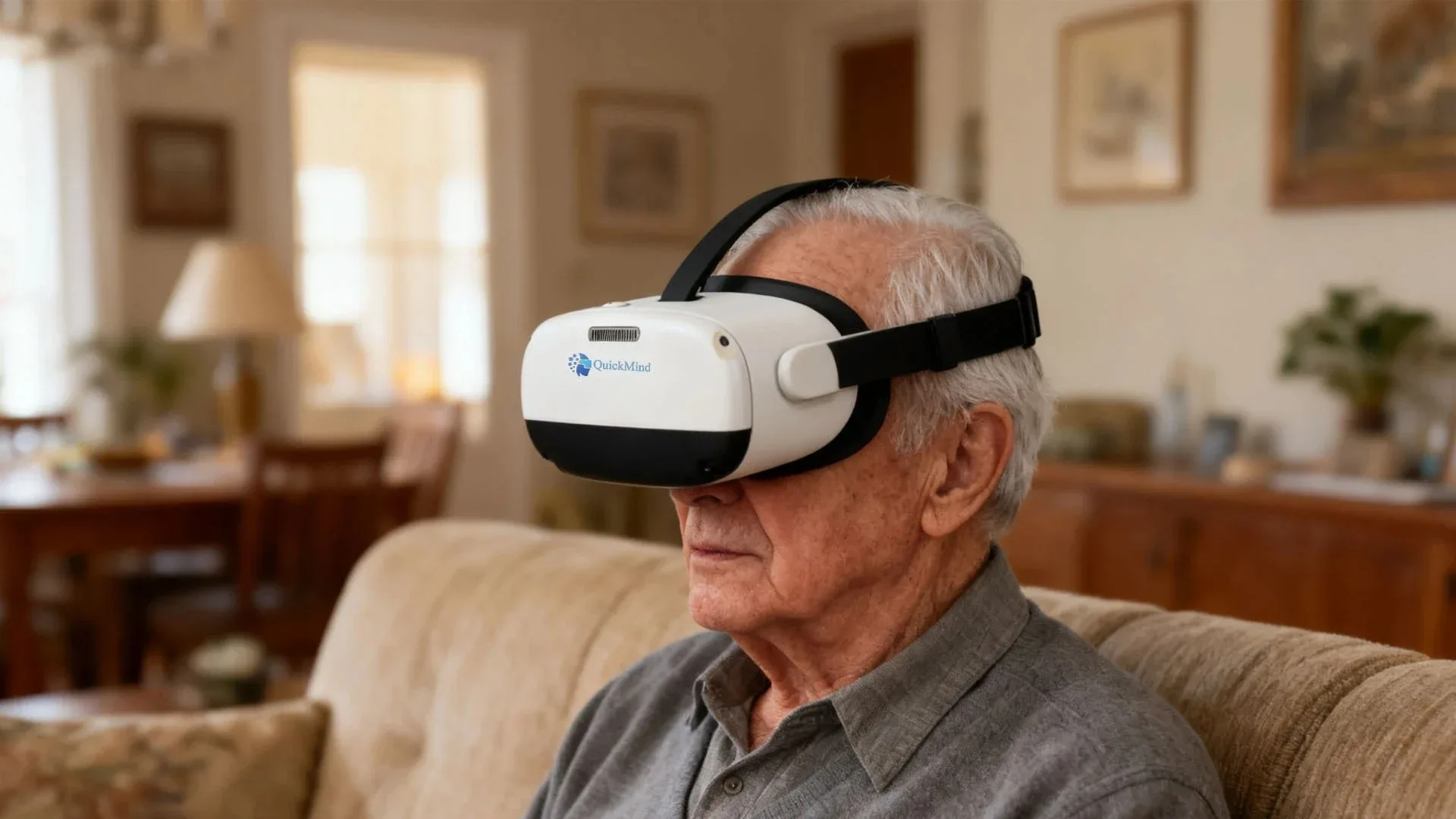
Progressive assessments shows that interactive virtual spaces strategy can dramatically advance the conditions of subjects dealing with dementia. By transferring them to relaxing settings, VR supplies a novel option for mental involvement, psychological balance, and group participation. Various tests have indicated that VR therapy can lower agitation, nervousness, and depression in dementia patients while also raising their recall, concentration, and expressive competencies.
- VR allows subjects with dementia to relive fond remembrances through responsive animations.
- Likewise, it can yield a comfortable and nurturing space for relational participation, promoting a perception of association and affiliation.
- Clinicians maintain that VR therapy has the promise to innovate dementia care by delivering new and creative avenues to handle the multifaceted obstacles faced by users struggling against this condition.
Virtual Medical Treatments for Brain Improvement in Alzheimer's
Expanding cyber treatments are revealing effectiveness in the domain of memory advancement for individuals struggling with Alzheimer's dementia. These applications harness electronic devices to enhance brain processing and hypothetically curtail the development of the illness. Immersive practices, personalized feedback, and mental training are some illustrations of processes being tested in this developing area. While experiments are proceeding, digital therapeutics present a supplementary channel for upgrading the quality of those suffering from neurodegenerative Alzheimer type.Addressing Alzheimer's with Virtual Territory Journeys
Pertaining to participants experiencing neurodegenerative Alzheimer's type, the continuous decline of mental capacity and mental skills can considerably influence their aptitude to interact with the environmental sphere. This harmful state often generates in remoteness, agitation, and a diminished self-recognition. Newest progresses in virtual reality technology show a state-of-the-art opportunity to alleviate these problems by producing immersive realities that can engage the brain and invigorate cognitive function.
Simulated reality settings engineered specifically for those with Alzheimer's can carry them in recognizable venues, such as their youthful dwelling or a favorite park, evoking positive memories and lessening anxiety. Through interactive endeavors, these virtual settings can also engage cognitive abilities like recollection, vigilance, and analytical skills.
The possible gains of virtual reality in Alzheimer's treatment are enormous. Early examinations have proved constructive results, with users showing improvements in cognitive ability, mood, and overall quality of life. As this platform develops, it holds the key to altering the way we approach Alzheimer's disease, making available a new pathway for care and enabling.
VR-Mediated Reminiscence Therapy for Individuals with Alzheimer's
Reminiscence therapy is a broadly accepted technique used to strengthen cognitive function and quality of life in individuals with Alzheimer's disease. This customary form of therapy involves prompting patients to recall past experiences, often through storytelling. However, a cutting-edge approach is emerging: VR-mediated reminiscence therapy.
This immersive technology utilizes virtual reality headsets to bring patients in faithful environments that stimulate memories from their past. By reliving these constructed realities, individuals with Alzheimer's can connect with their past in a impactful way.
The Role of VR in Enhancing Dementia Patient Recall and Cognition
Virtual reality (VR) is emerging as a hopeful mechanism in the fight against dementia, granting trailblazing ways to engage memory and cognition. By creating immersive environments, VR can aid individuals with dementia revisit memories, engage in meaningful activities, and boost cognitive aptitudes. Studies have revealed that VR interventions can cause noticeable improvements in memory recall, attention, and cognitive awareness. Moreover, VR provides a risk-free and favorable space for individuals with dementia to communicate, reducing feelings of isolation and anxiety.
- Furthermore, VR can be adjusted to individual needs and preferences, permitting increased levels of integration.
- In spite of the opportunities of VR, extended research is needed to fully understand its long-term benefits in dementia care.
Reawakening Past, Forging Connections: VR's Power in Alzheimer's Socialization
Augmented simulated realms is emerging as a innovative technology in the discipline of cognitive disorders. By producing participatory and communicative environments, VR has the ability to rekindle memories, foster social interaction, and improve the overall quality of life for individuals experiencing Alzheimer's. Especially an important influential aspects of VR is its ability to transport users to cherished places and journeys from their past. Whether it's a jaunt inside a childhood home or a illustration of a beloved holiday, these virtual escapades can recall happy memories and Cognitive Rehabilitation strengthen cognitive power. Furthermore, VR can encourage social interaction by coupling individuals with others who share similar memories. This can be particularly constructive for people with Alzheimer's who may encounter obstacles with traditional social communication. By providing a safe and engaging virtual space, VR can reduce feelings of isolation and loneliness, which are common among patients affected by Alzheimer's. Overall, VR holds immense promise for improving the lives of users with Alzheimer's by restoring memories, fortifying connections, and improving their quality of life. As technology advances to develop, we can expect even more innovative applications of VR in the field of dementia care.Employing Cognitive Training: Implementing VR Techniques for Alzheimer's Aid
Simulated immersive settings is rapidly emerging as a game-changing tool in the realm of cognitive training, particularly for users living with Alzheimer's disease. By immersing patients in interactive and engaging virtual environments, VR-based interventions can boost cognitive functions such as memory, attention, and problem-solving. These games frequently incorporate elements of storytelling, exploration, and social interaction, making the training process exceptionally satisfying. Studies have shown that VR-based cognitive training can lead to marked improvements in cognitive performance, supposedly delaying the progression of Alzheimer's symptoms. Moreover, VR provides a safe and controlled environment for patients to practice new skills and develop their confidence.
- Game-driven approaches in VR training can make it more interactive and appealing for persons with mental decline.
- VR simulations can offer realistic scenarios that challenge and stimulate cognitive functions.
- Personalized VR experiences can cater to individual needs and learning styles.
Investigating VR Benefits in Dementia Management
Enthralling replicated spaces offer a innovative and hopeful avenue for clients facing memory loss. These approaches can transport familiar environments, allowing those affected by cognitive decline to access cherished memories and support a sense of ease. By mitigating the challenges of dementia, VR worlds have the capacity to augment quality of life for both persons and their supporters.
- Research indicate that VR interventions can meaningfully impact cognitive function, neural well-being, and even kinetic abilities in individuals with dementia.
- Moreover, VR enables a safe and managed environment for experience, reducing the risk of trauma.
- Beyond this, VR can boost social relationships by allowing individuals with dementia to bond in online activities with others.
Virtual Reality for Prompt Alzheimer's Screening and Intervention
Alzheimer disorder poses a complex difficulty, often going undetected in its early stages. Despite this, virtual reality (VR) is developing as a innovative tool for prompt recognition. Through immersive platforms, VR can monitor cognitive operation in ways that traditional methods struggle to. This capability allows for rapid assistance strategies, potentially impeding disease progression and advancing the quality of life for persons with Alzheimer's.
- Virtual reality tools assess memory, concentration, and spatial cognition under supervision.
- Tailored VR programs enable patients to partake in mental activation tasks.
- Simulated realities offer inclusive spaces for Alzheimer's patients to associate and communicate.
Connecting Dementia Patients: VR's Role in Communication and Interaction Enhancement
{In the realm of dementia care, innovative technologies are emerging to strengthen the lives of participants managing dementia. Virtual reality (VR) is one such innovation that holds immense prospect for bridging the communication and interaction gap often experienced by those with dementia. By fabricating interactive simulated worlds, VR can activate cognitive function, reduce behavioral issues, and ultimately improve the overall well-being of users in dementia care.
VR experiences tailored to dementia care can range from reminiscence therapy sessions that return users to significant former experiences, to interactive games that promote social interaction and cognitive engagement. Furthermore, VR has the power to connect persons managing dementia with social groups, regardless of physical isolation, fostering a sense of togetherness.
- VR can support in reducing agitation and anxiety by providing a calming and focusing environment.
- Assessments have shown that VR interventions can lead to improvements in cognitive function, mood, and social interaction in users diagnosed with dementia.
- As technology progresses to progress, we can expect even more innovative and {effective|beneficial|helpful|powerful|impactful|successful|productive|efficient
